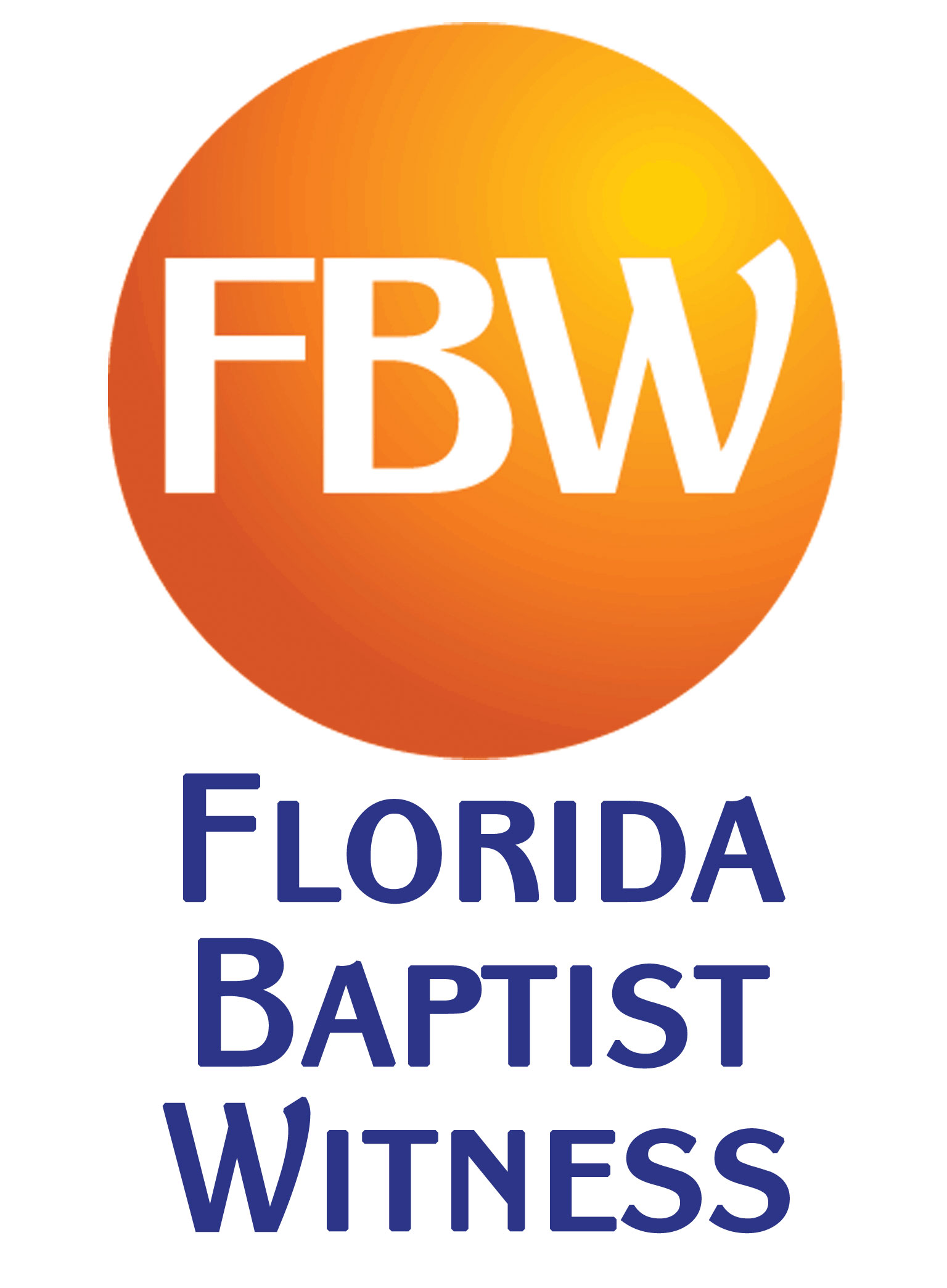“ERLC Challenges Abortion Clinic Buffer Zones.” by the Baptist Press in the Florida Baptist Witness. (October 14, 2013).
 In a friend-of-the-court brief, the ERLC urges the justices to invalidate a Massachusetts buffer zone law and to reverse its own previous opinion upholding a similar law in Colorado. Joining the ERLC on the CLS brief were the National Association of Evangelicals, U.S. Conference of Catholic Bishops, National Hispanic Christian Leadership Conference… Institutional Religious Freedom Alliance and International Society for Krishna Consciousness.
In a friend-of-the-court brief, the ERLC urges the justices to invalidate a Massachusetts buffer zone law and to reverse its own previous opinion upholding a similar law in Colorado. Joining the ERLC on the CLS brief were the National Association of Evangelicals, U.S. Conference of Catholic Bishops, National Hispanic Christian Leadership Conference… Institutional Religious Freedom Alliance and International Society for Krishna Consciousness.
“Can Faith-Based Organizations Keep Their Faith?” by Bill Blacquiere in the Christian Post’s Every Child blog. (October 9, 2013).
 I am so grateful for the work of Stanley Carlson-Thies, who founded the Institutional Religious Freedom Alliance (IRFA) to protect religious and faith-based organizations…
I am so grateful for the work of Stanley Carlson-Thies, who founded the Institutional Religious Freedom Alliance (IRFA) to protect religious and faith-based organizations…
“National Association of Evangelicals: Freedom to Assemble in Front of Abortion Clinics.” in Crossmap. (September 29, 2013).
 In addition to the NAE, the McCullen v. Coakley brief (filed in the U.S. Supreme Court arguing that a Massachusetts law that prohibits persons (with some exceptions) from knowingly entering a public street or sidewalk within 35 feet of an abortion facility violates the First Amendment) was joined by the National Hispanic Christian Leadership Conference, the United States Conference of Catholic Bishops, … Institutional Religious Freedom Alliance, and the Lutheran Church – Missouri Synod.
In addition to the NAE, the McCullen v. Coakley brief (filed in the U.S. Supreme Court arguing that a Massachusetts law that prohibits persons (with some exceptions) from knowingly entering a public street or sidewalk within 35 feet of an abortion facility violates the First Amendment) was joined by the National Hispanic Christian Leadership Conference, the United States Conference of Catholic Bishops, … Institutional Religious Freedom Alliance, and the Lutheran Church – Missouri Synod.
“OMB Updates Approaches to Faith-Based Projects.” by Charles Clark in Government Executive. (August 6, 2013).
The guidance builds on a 2010 executive order that itself was based on recommendations from an advisory group representing diverse groups, including the Union of Orthodox Jewish Congregations of America, the Religious Action Center of Reform Judaism, the United States Conference of Catholic Bishops, the Human Rights Campaign Foundation, the Baptist Joint Committee for Religious Liberty, the Incarnate Word Foundation, the Interfaith Alliance, the Institutional Religious Freedom Alliance, and Americans United for Separation of Church and State.
“Religious Freedom: for Individuals and Communities.” by David Koyzis in First Things. (July 2, 2013).
 To this end the Institutional Religious Freedom Alliance is engaging in an important work. Under the leadership of Stanley Carlson-Thies, IRFA aims to safeguard “the religious identity and faith-shaped standards and services of faith-based organizations, enabling them to make their distinctive and best contributions to the common good.” In a society so heavily influenced by individualism, IRFA’s efforts deserve our support as it strives to deepen recognition of the communal character of religious freedom.
To this end the Institutional Religious Freedom Alliance is engaging in an important work. Under the leadership of Stanley Carlson-Thies, IRFA aims to safeguard “the religious identity and faith-shaped standards and services of faith-based organizations, enabling them to make their distinctive and best contributions to the common good.” In a society so heavily influenced by individualism, IRFA’s efforts deserve our support as it strives to deepen recognition of the communal character of religious freedom.
“Religious Freedom: A Civil Rights Issue.” by Kathryn Jean Lopez in the National Review Online. (May 29, 2013).
 There were also many groups and institutions that submitted comments, including … the Institutional Religious Freedom Alliance… The fact that they took the time to submit comments indicates the seriousness with which they view the state of religious freedom in the United States. Several contributors, including Roger Trigg, Paul Coleman, and Gudrun Kugler, submitted comments discussing what has happened in Britain and Europe when anti-discrimination norms collide with religious freedom.
There were also many groups and institutions that submitted comments, including … the Institutional Religious Freedom Alliance… The fact that they took the time to submit comments indicates the seriousness with which they view the state of religious freedom in the United States. Several contributors, including Roger Trigg, Paul Coleman, and Gudrun Kugler, submitted comments discussing what has happened in Britain and Europe when anti-discrimination norms collide with religious freedom.
“US Government’s Faith-Based Initiatives Moves Ahead While Dodging Controversy.” by Matthew Brown in Deseret News. (May 16, 2013).
[Dr. Stanley Carlson-Thies] recalls convening a 2009 meeting with about 15 faith-based groups and Obama’s first-term transition team. The exchange revealed that imposing hiring restrictions on religious groups would cause upheaval in the existing delivery of welfare services because too many religious groups providing those services had been exempt from civil rights hiring restrictions for a decade or longer.
“White House Appoints Melissa Rogers to Lead Faith-Based Office.” by Edward Lee Pitts in the Christian Examiner Online. (March 19, 2013).
 “I think it is a good choice for religious freedom and for faith-based service,” said Stanley Carlson-Thies, founder and president of the Institutional Religious Freedom Alliance. “Melissa has long been a strong advocate of protecting the rights of religious organizations. It’s a strong choice for a potentially very important position as the federal government impinges on all kinds of religious issues.”
“I think it is a good choice for religious freedom and for faith-based service,” said Stanley Carlson-Thies, founder and president of the Institutional Religious Freedom Alliance. “Melissa has long been a strong advocate of protecting the rights of religious organizations. It’s a strong choice for a potentially very important position as the federal government impinges on all kinds of religious issues.”
“Was Jesus Religious Enough for the HHS Mandate?” by Terry Mattingly in Patheos. (May 13, 2013).
 After all, the Good Samaritan wasn’t ordained and didn’t work for a church or a non-profit ministry, noted Stanley Carlson-Thies, president of the Institutional Religious Freedom Alliance. He spoke during a recent religion-and-politics symposium at Calvin College in Grand Rapids, Mich., which was streamed online.
After all, the Good Samaritan wasn’t ordained and didn’t work for a church or a non-profit ministry, noted Stanley Carlson-Thies, president of the Institutional Religious Freedom Alliance. He spoke during a recent religion-and-politics symposium at Calvin College in Grand Rapids, Mich., which was streamed online.
“White House Picks Baptist Church-State Expert to Head Faith-Based Office.” by Melissa Steffan in Christianity Today. (March 13, 2013).
 Institutional Religious Freedom Alliance (IRFA) president Stanley Carlson-Thies has released a statement voicing his support for Rogers in her new role. However, he notes one caveat.
Institutional Religious Freedom Alliance (IRFA) president Stanley Carlson-Thies has released a statement voicing his support for Rogers in her new role. However, he notes one caveat.
“The Surprising Christian Organizations Suing the Government.” by Melissa Steffan in Christianity Today. (November 19, 2012).
 “The organizations that have sued the administration over the HHS contraceptives mandate have done so despite, not because of, the ‘culture war’ aspect of the mandate,” said Stanley Carlson-Thies, director of the Institutional Religious Freedom Alliance. In fact, says Carlson-Thies, many evangelical organizations have been reluctant to act “for fear they would wrongly be labeled as culture warriors or as trying to make a political point,” he said.
“The organizations that have sued the administration over the HHS contraceptives mandate have done so despite, not because of, the ‘culture war’ aspect of the mandate,” said Stanley Carlson-Thies, director of the Institutional Religious Freedom Alliance. In fact, says Carlson-Thies, many evangelical organizations have been reluctant to act “for fear they would wrongly be labeled as culture warriors or as trying to make a political point,” he said.
“Obama’s Defense of Religion.” by Steve Chapmen in the Chicago Tribune. (February 23, 2012).
 “We commend your steadfast preservation of federal policies that protect the freedom of religious organizations to consider religion in making employment decisions,” it (The Institutional Religious Freedom Alliance) informed Obama last year. “Mr. President, your appreciation for the good that religious organizations contribute on a daily basis to our society is evident.”
“We commend your steadfast preservation of federal policies that protect the freedom of religious organizations to consider religion in making employment decisions,” it (The Institutional Religious Freedom Alliance) informed Obama last year. “Mr. President, your appreciation for the good that religious organizations contribute on a daily basis to our society is evident.”
In June of 2012, IRFA sent a letter to Secretary of Health and Human Services Kathleen Sebelius, protesting how the contraceptives mandate creates to classes of religious organizations. Over 140 leaders signed this letter. The following articles were written about the letter.
“Christian Groups Protest Government’s ‘Two-Class’ Concept for Religious Organizations.” by Howard Friedman in Religion Clause. (June 15, 2012).
Baptist Press reports on a June 11 letter to Health and Human Services Secretary Kathleen Sebelius from over 140 leaders of Christian churches, educational institutions and other Christian organizations protesting the “two-class concept of religious organizations” that has been created by attempts to accommodate faith-based objections to the Obama administration’s mandate on contraceptive coverage in health insurance policies.
“Coalition Criticizes HHS 2-tier Religious System.” by Michael Foust in the Baptist Press. (June 14, 2012).
 A diverse coalition of more than 140 Christian leaders says it has “grave” concerns over the Obama administration’s creation of a two-tiered system of religious organizations within the new health care law, and it has sent a letter to Kathleen Sebelius, secretary of the Department of Health and Human Services, urging her to abolish the division.
A diverse coalition of more than 140 Christian leaders says it has “grave” concerns over the Obama administration’s creation of a two-tiered system of religious organizations within the new health care law, and it has sent a letter to Kathleen Sebelius, secretary of the Department of Health and Human Services, urging her to abolish the division.
“Ron J. Sider, a ‘Conservative’ Politico?” by Terry Mattingly at Patheos. (June 13, 2012).
As the battles continue over religious liberty issues — by which I mean battles over issues that the White House has described as having religious-liberty implications — journalists continue to struggle with that old, old issue of simplistic labeling.
“Unite: 150 Christian Leaders Protest HHS Mandate as ‘Million Rosaries’ Campaign Launches.” by Kathleen Gilbert in LifeSiteNews.com. (June 13, 2012).
 Less than two months away from when the HHS mandate will go into effect, Protestant and Catholic leaders are teaming up to increase pressure against the Obama administration: recently, nearly 150 Christian leaders have demanded a broader religious exemption, while an international Catholic pro-life leader rolled out a campaign for one million rosaries against the new insurance rule.
Less than two months away from when the HHS mandate will go into effect, Protestant and Catholic leaders are teaming up to increase pressure against the Obama administration: recently, nearly 150 Christian leaders have demanded a broader religious exemption, while an international Catholic pro-life leader rolled out a campaign for one million rosaries against the new insurance rule.
“Faith Leaders Decry Mandate’s Creation of Religious Classes.” by Michelle Bauman in the Catholic News Agency. (June 13, 2012).
Nearly 150 leaders and supporters of faith-based service organizations have spoken out against the Obama administration’s contraception mandate because it creates class distinctions for religious groups.
“Religious Leaders Ask HHS to Broaden Birth Control Exemption.” by David Gibson. Orgininally published by the Religion News Service. Reprinted in the Washington Post. (June 12, 2012).
![]() A coalition of nearly 150 religious leaders, led by conservative Protestants, have petitioned the Obama administration to broaden the exemption that allows churches and some religious organizations to avoid a controversial new mandate that all health care insurers provide free contraception coverage.
A coalition of nearly 150 religious leaders, led by conservative Protestants, have petitioned the Obama administration to broaden the exemption that allows churches and some religious organizations to avoid a controversial new mandate that all health care insurers provide free contraception coverage.
“Faith Leaders Protest Contraceptives Rule.” by Bob Allen in the Associated Baptist Press. (June 12, 2012).
Nearly 150 faith leaders wrote Health and Human Services Secretary Kathleen Sebelius June 11 protesting the administration’s requirement that faith-based employers include contraceptive coverage for women in their health-care plans.
“Birth Control Buzz Kill: HHS Contraception Mandate Comes Under More Fire.” by Victoria Bekiempis in The Village Voice. (June 12, 2012).
 A cohort of 149 religious leaders sent a letter to HHS Secretary Kathleen Sebelius on Monday, claiming that exemptions make for a two-tier system, under which churches qualify for exemptions, but that faith-based charity organizations might or might not qualify.
A cohort of 149 religious leaders sent a letter to HHS Secretary Kathleen Sebelius on Monday, claiming that exemptions make for a two-tier system, under which churches qualify for exemptions, but that faith-based charity organizations might or might not qualify.
“149 Religious Leaders to HHS Secretary: Stop 2-Class Religious Scheme.” by Napp Nazworth in the Christian Post. (June 11, 2012).
A letter signed by 149 religious leaders was sent to Health and Human Services (HHS) Secretary Kathleen Sebelius Monday expressing concern over a two-class concept of religious organizations created by her department and other federal agencies. Churches and faith-based religious organizations should be provided the same religious freedom protections, the letter states.



